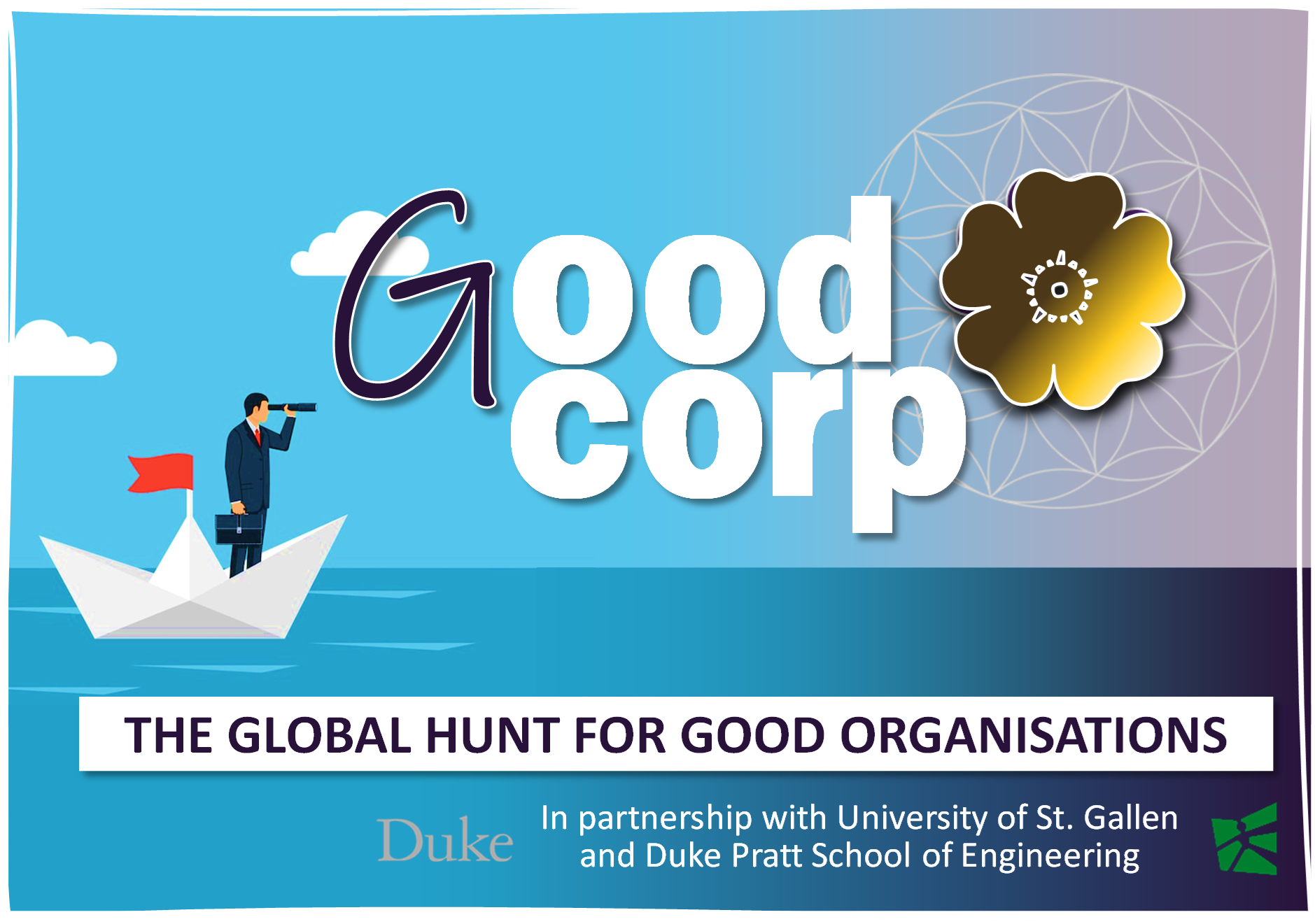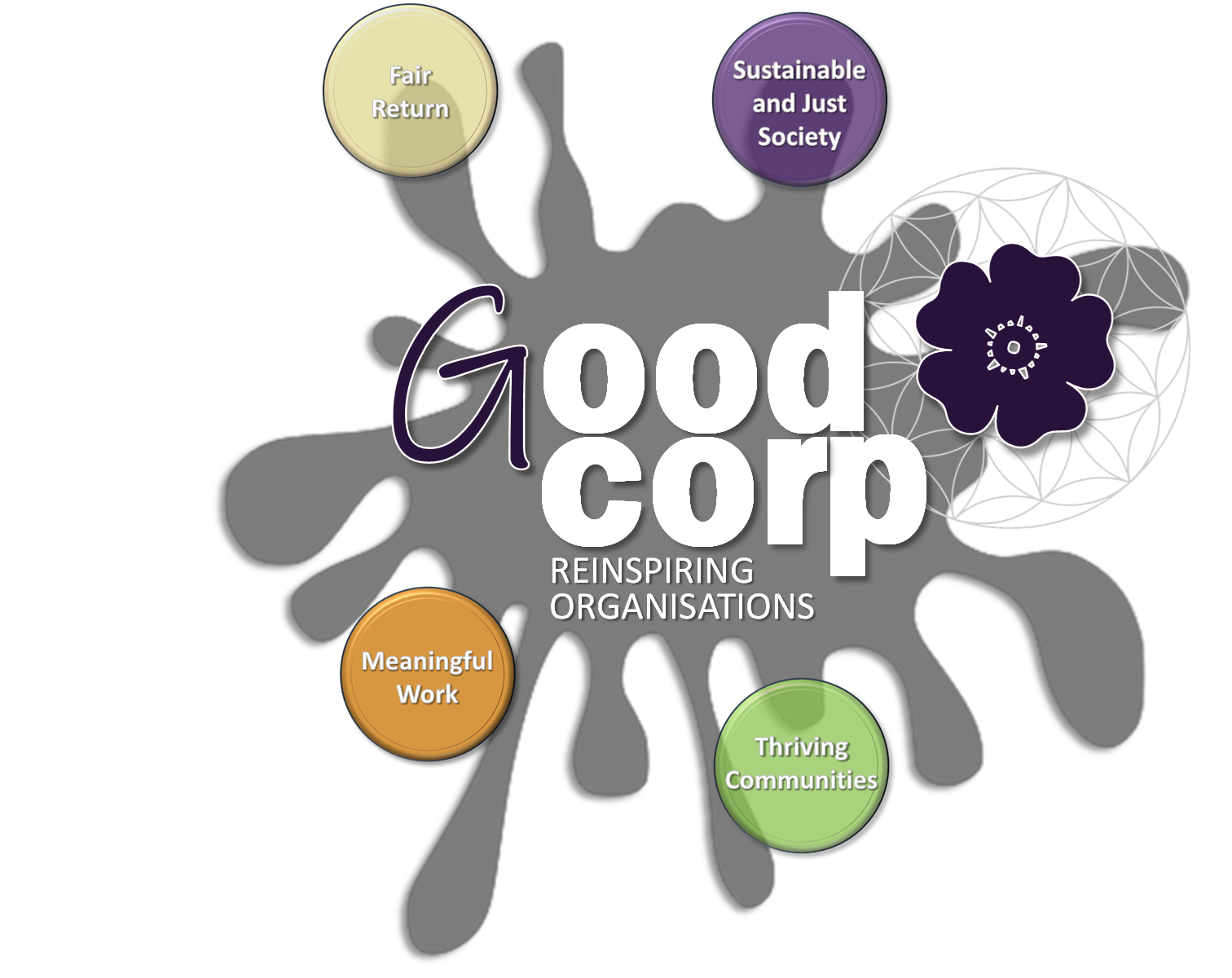Course Updates
✿ Hurrah! The next Hunting party is officially departed on 19th March 2024! Welcome to Pilot #2!
By: Otti / Posted: Mar 19, 2024



Jump to

✿ Hurrah! The next Hunting party is officially departed on 19th March 2024! Welcome to Pilot #2!
By: Otti / Posted: Mar 19, 2024
✿ VALIDATION STAGE and is now live! Further stage pages will go live every week!
✿ DIFFERENTIATION STAGE and is now live! Further stage pages will go live every week!
✿ VALIDATION TOOLKIT IS NOW UPDATED (V4)
✿ Official Hunt page: your case studies will be here https://shorturl.at/pAP24
By: Otti / Posted: Mar 18, 2024
✿ Please register your participation for the online part of the course now & upload your picture and bio for the course facebook! Link below!
✿ Please shout in case you have any questions, comments or feedback!
By: Silvio / Posted: <ar 18, 2024
A global initiative for students interested in responsible business
The "Hunt for Good Organizations" is a groundbreaking initiative sponsored by Duke University, US, and the University of St. Gallen, Switzerland. It is an innovative MBA challenge is designed to explore and expand the evolving theory and practice of Good Organizations.
What's It All About?
This unique course promises a transformative journey, empowering students to redefine their perception of organizations and leadership, and examine their own role in shaping a better world. Over the course, student teams will embark on a quest to identify and interview exemplary companies that are transforming their business and operating models in the spirit of goodness. Their mission: to uncover what sets these organizations apart and create insightful case studies that capture "the difference that really makes the difference". Through the elaboration of these case studies, we aim to empower our students to make more informed choices and actions in their own future careers.
Why Is This Important?
The "Hunt for Good Organizations" is more than an academic pursuit; it's a movement. We are dedicated to identifying and celebrating organizations that are actively contributing to a positive societal and environmental impact. Our students will delve deep into these organizations, uncovering and promoting the remarkable ways in which they enable the greater good. But we're not stopping there. Our plan is to share these case studies and best practices with a global audience to stimulate collective learning. Furthermore, we aim to develop robust measurement instruments that can objectively recognize and evaluate good organizations worldwide, facilitating qualification and continuous improvement against the highest ethical standards.
Making a Global Impact
In a world grappling with pressing issues like climate change, inequality, and social injustice, the role of organizations and leadership has never been more crucial. Therefore, our mid-term objectives are ambitious. We aspire to establish an alternative economic narrative that champions an economy for the greater good, with "Good Organizations" leading the way. We believe that by acknowledging and promoting organizations that are actively embodying positive change, we will not inspire others to follow but also set new benchmarks for businesses as forces for good, driving a systemic shift in leadership and business education. By engaging with this initiative, future employees and investors can make informed choices, supporting organizations that align with their values and avoiding those that fall short. Simultaneously, we want to attract a wider academic and public audience to our change initiative, generating vibrant interest and potential future collaboration.
Join us on this journey to redefine business, leadership, and their role in making the world a better place!
5 min Introduction (Tony O'Driscoll)
Journey Objectives
Over the past decades, the world has been grappling with a series of global discontinuities, requiring nations, organizations, and individuals to make often abrupt and radical departures from the status quo:
Hence, the course's specific objective is to discover organizations that can serve as “beacons of light” to illuminate a path towards a brighter shared future. For these exemplars we want to understand - beyond simplistic frameworks, models and checklists - what is the “difference that makes a difference” in making these organizations shine. How is their transformational spirit, or essence, activated? How is it institutionalised so that it compels and propels these organizations to “light the way”? Of course, in the shortness of the initiative we can only achieve so much. Therefore, each case competition team will be tasked to develop a Case Study Report and a Pitch Presentation that can pass their learnings on to the next cohort, who we continue to develop and build our insights and understanding.
The Journey Map

After having familiarised yourselves with the "Good Organisation" manifesto, let's embark on a transformative learning journey, combining best practice in transformation management with critical insights from philosophy, psychology, sociology and management science. our goal is to explore how to inspire, identify and implement good work, and how to become good leaders ourselves.

Before embarking on the journey, please read the Good Organisations (draft) manifesto to familiarise yourself with the concept.
In this article we argue that a more fundamental change in how we think about work and how we design organisations is necessary. We build on neo-Aristotelian virtue ethics and suggest that a shift towards “eudaimocracy” might help to craft organisations that foster “organisational aliveness” and contribute positively to society. Drawing upon moral philosophy, sociology, complexity science and positive psychology we start to develop a set of principles and practices that could pragmatically bridge business ethics and management. In this context, we especially highlight the need to revise institutional governance, establish virtuous communities and develop practical wisdom and agency across the organisation. Using the concrete example of traditional HR processes, we examine how a novel approach could help to foster individual and collective flourishing and more radically address some of the shortfall of previous approaches.
Your Course facebook

I am Shubham a Master's in Engineering Management grad at Duke with 5 yrs of experience in New Product Introductions and Operations Excellence. Consulting vendors I was managing on their business performance improvements has motivated me towards the path of Strategy and I very focused on exploring and learning about Growth Strategies.

I'm William Peña, from Colombia - South America. I am 30 years old and I have lived in different countries around the world which allowed me to learn and speak 5+ languages fluently. My background is in Industrial Engineering and I am currently pursuing an Engineering Management Masters at Duke University in USA. I have worked in sales and as a consultant before. I love car racing and I am currently pursing to make another professional course to learn more and become better at it.
Your Course Creators
O'DRISCOLL
Tony O’Driscoll is a professor, speaker, author, and advisor whose engaging message emphasizes that the key digital-age differentiator is not technology, but people.
Tony has spent the bulk of his professional and academic career at the nexus of Business, Innovation, Technology, Change and Learning, creating and implementing strategies that enable organizations to realize the full potential of their most valuable asset: Human Beings.
hilger
Andy Hilger always had a passion for driving innovative cultures that create opportunities for both team members and clients. For the last six years, he served as the President of the $15 billion global staffing and services company Allegis Group. Currently, he leverages his expertise as guest lecturer at Duke University and American University, complemented by a regular blog on leadership. Andy is a sought-after speaker covering diverse subjects like digital transformation, the future of work, AI, leadership, and analytics.
WEIBEL
Director the Institute for Work and Employment Research University of St. Gallen, Professor for HRM and Organization Transformation, Former President of FINT (International Network of Trust Researchers), Executive Board Member of the Swiss Academy of Social Sciences and the Humanities. Passionate researcher and teacher in the fields of trust within and across organizations and hr/org practices leading to human thriving.
VOGT
Disruptive thinker, amateur poet, unacknowledged internet entrepreneur and passionate global C-level transformation leader with over 20 years of experience in implementing strategic business change in multi-cultural, complex organisations and in building global high performing teams to deliver sustainable shareholder value and happiness@work
Our Research Team

Good Organisations & Metrics
Identifying and strengthening good organizations is necessary to master the pressing challenges of our time.

Ethical Leadership
Together we are stronger. The time has come to gather and reflect on how we can bring "goodness" in individuals, organisations and society as whole.
Getting in touch